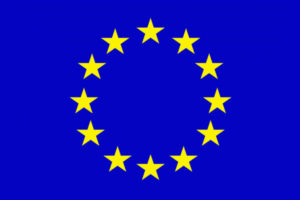Entitlement helps to fight 5-second discomfort
You are at a meeting where the speaker uses unfair or naive examples from your domain of expertise. If you do not react in 5 seconds, you will probably rationalize your silence and remain in your comfort zone. The comfort zone concept is highly related to the free will concept. Abiding in the comfort zone does not require too much effort. Standing up against someone, finding arguments, speaking in public, all require energy and strength of will. It is not necessary to use free will to do what you are tempted to do by your weaknesses. When we feel entitled to comfort we free ourselves from this kind discomfort both as employees and consumers.
1. Comfort of employees
Effort for comfort
The members trade their effort to make the company meet their needs. But this is done through abiding with the participative company (co-operative) values and principles. It is not fair if the members convince the participative company board that they are entitled to comfort (their need) by just being members of the participative company and nothing else. As the increasing mobility permits relatively easy job changes, if such a place of work, does not secure the comfort people feel entitled to, they will neither protest nor try to work harder. They will either start a new company, or travel and follow workplaces where their comfort can be secured.
Psychological comfort more important than physical discomfort

Of course moving to a new city is not comfortable, it is related to some level of fear, but it is more satisfying than leaving the psychological comfort zone, showing initiative or being persistent in doing something unacceptable by co-workers. We love our psychological comfort zones and are attracted to them by much higher gravitation forces than physics could imagine. This comfort phenomenon has many unpredictable consequences for our lifestyles and our work lives. It, in effect, leads to the “five invisible wars” we were talking about before. It is so because we put the entitlement to comfort above the rational level of common sense. If we are to change that entitlement attitude, we have to allow fear to be present in our organizational life in much the same way, as you cannot bring up your children without frustrating them. Employees and members have to see those market threats, risks, and dangers of failure are inevitable and that the more they understand them, the more responsible their decisions will be.
In one of the posts, I propose love in its multiple aspects as a road leading people out of fear and loneliness. I propose this to be the goal of companies to create an environment where it may happen.
2. Comfort and entitlements of consumers
Comfort is profitable
Most companies exist to make our life more comfortable. Our culture is responsible for promoting the entitlement to comfort because it is sponsored, or even sustained by businesses that profit from this form of culture. But these entitlements can cause harm through very profitable sales of arms, pesticides, harmful medicine, pornography, abortion, euthanasia, etc. It is possible because freedom of the market has overshadowed all other areas of freedom.
Comfort in daily life

cc by Andrew E.Larsen at flickr
Above, I mentioned broad examples. But the same phenomena happen on more elementary levels. For instance, it is because of comfort you take a pill rather than spend 20 minutes on preparing simple remedy of lemon, ginger, and honey; instead of climbing stairs, you take the elevator; instead of walking one kilometer, you go by car. We were recently surprised by our 12-year-old who wanted us to buy him a Segway, a new electric two wheels vehicle, so he does not have to walk or bike to school. I repeat, it is not a matter of particular products; it is an issue of comfort-based mindset.
Broader context of our comfort
As we shall see in the next post, our comfort is often related to someone else’s suffering. Responsible life of a person aware of all contemporary hypocrisies is not easy. In Black Gold, a film about coffee production, families are presented who have to make difficult decisions whether to grow coffee or chat (khat) a plant causing addiction and treated as a drug in many countries. I cannot imagine anyone who would not buy fair trade coffee after seeing the film. But cheap coffee at a cafe is our entitlement. All throughout history, there have been examples of entitlement we considered natural, but which slowly changed through patient work of activists sensitive to human suffering. Although there are still ca 30 million slaves since 1981 slavery is not legal in any country in the world. Just 20 years ago smokers were entitled to smoke wherever they wanted, but this too has changed. There are entitlements that persist in spite of thousands of years of opposite action. Many of the numbers quoted in the first chapter are related to these forms of entitlement and comfort.
Whenever I read of wars in Africa or the Middle East, I think of the numerous victims of post-colonial exploitation of developing countries that are never counted. Only several years ago, Canada, one of the richest countries in the world, was selling asbestos products to developing countries long after it had been found to cause cancer and was banned in Canada. The same is true with pesticides forbidden in the US, but being sold to poorer countries with higher corruption and lax legal systems. Many examples of this unjust exploitation can be found in the documentaries such as “Let’s make money”.
3. How comfort and entitlement is promoted
The greed of the investors and their need for comfort is realized not only by selling us the products but first of all by selling us their concept of life in comfort. It is mainly done by the entertainment industry and media, especially social media. It is there, not in schools or universities where our concepts of entitlement and comfort are formed.
Many years before any US product could enter the Cuban marketplace, the western tourists and filmmakers have managed to convince the Cubans that free market, greed oriented economy is what they desire.
4. Solution: Comfort limited by values
There are two concepts of the human being. The first is a biological being entitled to comfort that is looking for maximizing levels 1 (animal) and 2 (position) happiness at any cost. The second is a specific species that follows rules of humanistic values to achieve happiness 3 (relational) and 4 (transcendental) with the minimum possible cost to others. Taking into account other people is related to some cost of losing comfort and having to deal with fear to earn a better life. This attitude is at the core of a participative company, opposing the corporate mindset. It may also explain why participative companies thrive much better in developing countries and transform to ordinary companies in rich countries of the West. And what about your company?
If you want to read about research and history of entitlement, click here.
As after each diagnosis, I recommend a book or film, this time it is a short book Values by Ed Mayo: https://www.greenleaf-publishing.com/values-how-to-bring-values-to-life-in-your-business
| PREVIOUS | NEXT | ||
| Why co-operative values? Because they are universal. |









 The participation in this project is free because it is financed by a grant of the European Union -
The participation in this project is free because it is financed by a grant of the European Union - 